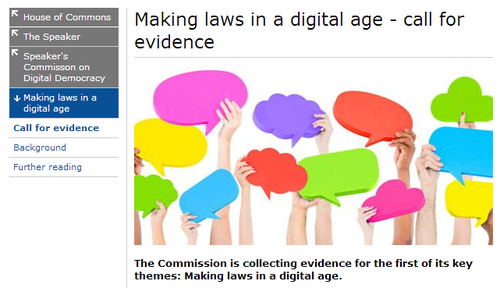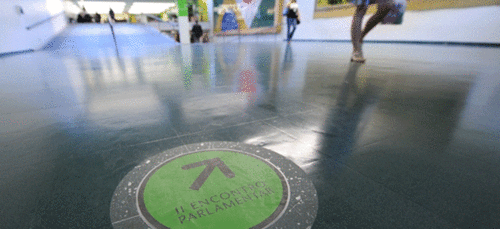The Speaker’s Commission on Digital Democracy, a new body of the UK parliament, provides evidence and recommendations that outline how the parliament can better serve its citizens through technology. Recognizing the diverse opportunities that technology provides for creating more open, collaborative forms of governance, the Speaker’s Commission will address a range of issues, including the legislative process, citizen engagement, representation, and evaluating the work of government.

Over the next few months, the Speaker’s commission will be collecting evidence on the first of these themes: making laws. The legislative process stands to change immensely as digital democracy becomes a reality, and the Speaker’s Commission wants to know what the public thinks are the greatest opportunities for a tech-empowered parliament.
To structure their call for evidence, the Commission has asked a few questions. Could technology improve access to the legislative process? Should technology be used to consider citizens’ opinions when crafting legislation? What are other parliaments doing with technology to make the legislative process stronger?
The Commission, which is made up of MPs and civil society representatives, will provide guidance on how the parliament can become more open and participatory through the use of technology. These recommendations will be based in part on the feedback and comments they receive during their open call for evidence.
If you have thoughts on these topics or valuable information to share, you are encouraged to submit evidence to the Commission via email or through the web forum.
(Photo credit: screenshot of Speaker’s Commission on Digital Democracy website)

